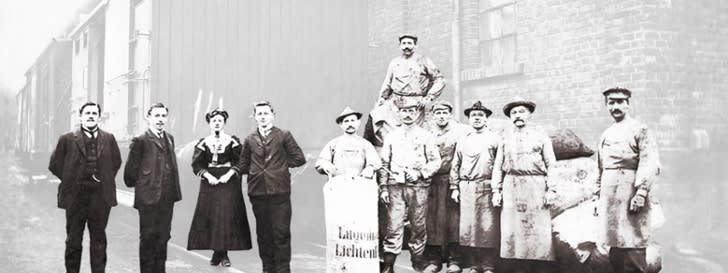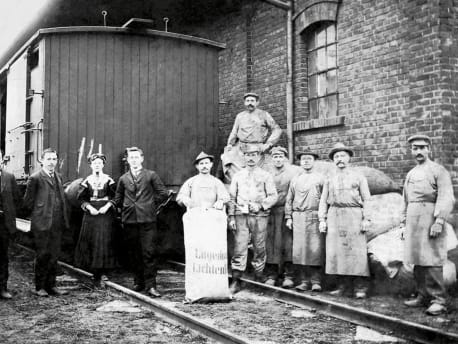
BayWa’s founding years

Founded in tough economic times
The BZDK, which had been founded in the late 19th century, already had a few hundred warehouses to its name by 1920. Grain, chemical fertilisers, feedstuff and machinery formed the BZDK’s core business focus.
But conditions were deteriorating with each passing day in the wake of WWI. Reparation payments, anchored in the Treaty of Versailles in 1919, were a heavy burden on the economy and the government. The public sector’s creditworthiness suffered as a result of the war’s financing, which had come from the issue of bonds. The government kept printing money faster and faster, causing the devaluation of cash and bank assets.

The BZDK separates its banking and trading business
The situation worsened in 1923, culminating in hyperinflation. Those in charge at the BZDK were forced to act. They separated their banking business from their trading business to make sure the trading business was no longer subject to the incalculable risk that the financial markets had long since become.
BayWa founded on 17 January 1923
The trading organisation was separated from the business of finance at an extraordinary general meeting on 17 January 1923. The company was recorded in the commercial register on 16 February 1923. Based in Munich, the new company’s full name was Bayerische Warenvermittlung landwirtschaftlicher Genossenschaften AG. But soon it became known simply as BayWa.

Slow consolidation
Optimism started flourishing in the mid-1920s. Modern agricultural methods were gaining ground, and BayWa was driving developments. In 1926, BayWa’s Board of Management spoke of “an optimistic view of Germany’s economic future” and called the company’s business development “satisfactory”.
The German economy showed signs of slight improvement in 1927, and the situation for the country’s populace seemed to be looking up. Demand for food increased, but so did food imports. BayWa had an uncompromising focus on quality and the increased use of operating resources and machinery to counteract the impact of cheap imports due to the surplus production that was a common situation in Europe.
Thanks to favourable business conditions during the financial year, the company’s revenues exceeded RM 100 million for the first time. With profits rising, BayWa was able to pay a dividend of 6%.